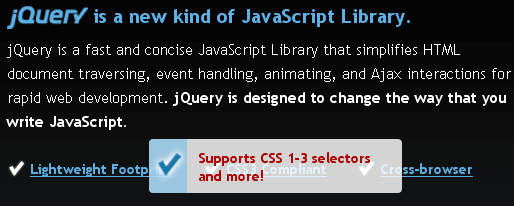JavaScript waitForever
Writing mochitests for new features in DevTools can be difficult and time-consuming. There are so many elements interacting in an async manner that I oftentimes find myself using the debugger to debug the debugger! In the case where it's unclear what interaction isn't working properly, I find myself going to a neat utility function: waitForever. By using this function, paired with await, I can interact with the page while a given test is running to find the problem!
The JavaScript
waitForever is a super small snippet:
function waitForever() {
return new Promise(r => {});
}
// Usage:
await waitForever();
The function uses a promise which never resolves, thus no additional statements are triggered while also not locking up the browser. From there I can click around and explore elements to find what I've messed up in my test.
Utility functions like these make web development much easier and more enjoyable. Add this one to your toolbox!
![Chris Coyier’s Favorite CodePen Demos]()
David asked me if I'd be up for a guest post picking out some of my favorite Pens from CodePen. A daunting task! There are so many! I managed to pick a few though that have blown me away over the past few months. If you...
![How to Create a Twitter Card]()
One of my favorite social APIs was the Open Graph API adopted by Facebook. Adding just a few META tags to each page allowed links to my article to be styled and presented the way I wanted them to, giving me a bit of control...
![Duplicate the jQuery Homepage Tooltips Using Dojo]()
The jQuery homepage has a pretty suave tooltip-like effect as seen below:
Here's how to accomplish this same effect using Dojo.
The XHTML
The above HTML was taken directly from the jQuery homepage -- no changes.
The CSS
The above CSS has been slightly modified to match the CSS rules already...
![Elegant Overflow with CSS Ellipsis]()
Overflow with text is always a big issue, especially in a programmatic environment. There's always only so much space but variable content to add into that space. I was recently working on a table for displaying user information and noticed that longer strings were...





Thanks for the tip David! I’ll keep that in mind when working on mochi tests. Have you found any other uses for this snippet?